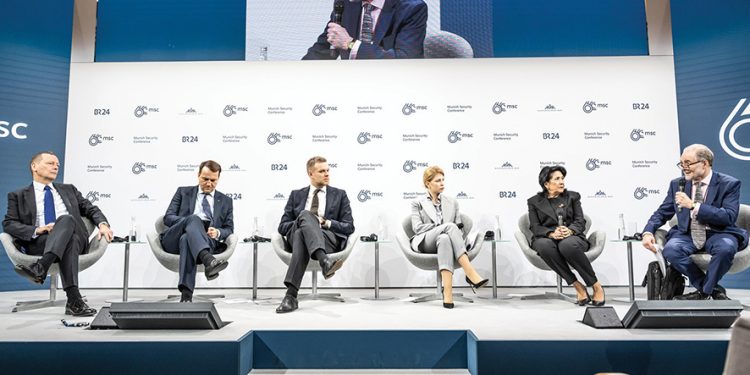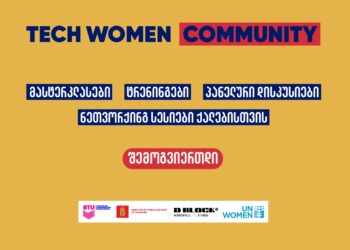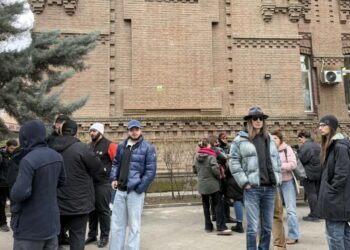The Georgian Minister of Foreign Affairs, Ilia Darchiashvili, met with the Vice-Chairman and CEO of the Munich Security Conference, Benedikt Franke this week.
The meeting is said to have highlighted the successful and longstanding cooperation between the Munich Conference and the Georgian government, and focused on future collaboration.
“Minister Darchiashvili emphasized the importance of presenting Georgia properly within the Munich Conference, an effective international forum addressing global political challenges.
“The conversation also touched on the 2024 report of the conference [see below], with the Georgian side noting that the report relies on information from politically motivated individuals,” the Georgian Foreign Ministry stated.
Darchiashvili highlighted the country’s focus on European integration during his discussions at the Munich Security Conference, and mentioned working with partners so as to secure strong support for Georgia’s European integration.
“We are actively engaging with our partners to ensure that Georgia has robust support. A notable discussion took place with the recently appointed Minister of Foreign Affairs of France, who pledged support for our country,” Darchiashvili noted. “We are continuing these discussions with our German partners, emphasizing the importance of consistent backing from influential European Union members such as France and Germany.
“Additionally, we have had interesting meetings with the US delegation, acknowledging the United States as our main strategic partner.
“Our participation in the Munich Conference has yielded positive outcomes, mobilizing our friends and partners around critical issues that are of utmost priority for Georgia. These issues remain our number one, primary focus,” he said.
The Vice-Chairman of the Munich Conference expressed interest in further cooperation with the Georgian government, including the planning of joint events to help strengthen the positive image of Georgia.
2024 Munich Security Report Calls to Extend Security Guarantees to Countries on Accession Path
Within the 2024 edition of the Munich Security Report, titled “Lose-Lose?”, Bidzina Ivanishvili, described as “the pro-Russian oligarch and founder of Georgia’s governing party,” is identified as being responsible for Georgia’s recent democratic backsliding and movement away from the European Union, “against the wishes of the majority of the Georgian public.”
Apart from the role of Ivanishvili, the report also highlights Russia’s tactic of using threats of “fueling separatism in Abkhazia and South Ossetia [occupied Tskhinvali region] to sow instability.” The report reads that “Russia may have failed to draw Georgia, Moldova, and the Western Balkans into its camp, but it still seeks to spoil their westward integration.”
According to the report, following the Russian invasion of Ukraine, the cooperative era of European security has ended, and countries stuck in the grey zone between the Russian and Western camps find themselves in a precarious situation, forced to choose sides. It notes that Georgia, Moldova, and the Western Balkans are feeling “the precariousness of being in between the camps.”
The report states that it is in the hands of the EU and NATO to “shrink the grey zone” by actively supporting countries on their paths toward membership while also setting more ambitious milestones along the way.
It calls on the EU to concretize the notion of staged accession and reward reform progress with gradual access to its institutions and policies. This should include, according to the report, “regular invitations of candidate countries as guests to European Council and Council meetings.” Moreover, “NATO Allies should, where necessary, extend bilateral security guarantees in the interim phase until accession,” the report states.
President Zurabishivili: For us, the enlargement of the European Union is an existential issue
“Enlargement of the European Union is an existential issue for us,” Georgia’s President Salome Zurabishvili said this week, while speaking at a panel held within the Munich International Conference, A Deeper, Wider and More Capable European Union. “It is not a question of procedure, or a matter of approval or disapproval. There is no choice. Enlargement is also an existential issue for the European Union.
“If we look at the global picture, we will see that Russia not only invaded Ukraine, threatens our countries with cyberattacks and hybrid war, but also wants to enter a satellite war, which will threaten the communication and logistics of our countries. We have to do more internally, and I’m talking about Georgia, to accelerate reforms. But nothing will change the fact that we all together have no alternative but to stand together, to be united, to be more democratic, and to confront together the alliance of autocracy that nurtures terrorism, cyber-attacks – all threats that come from one direction,” Zurabishvili concluded.
By Team GT














